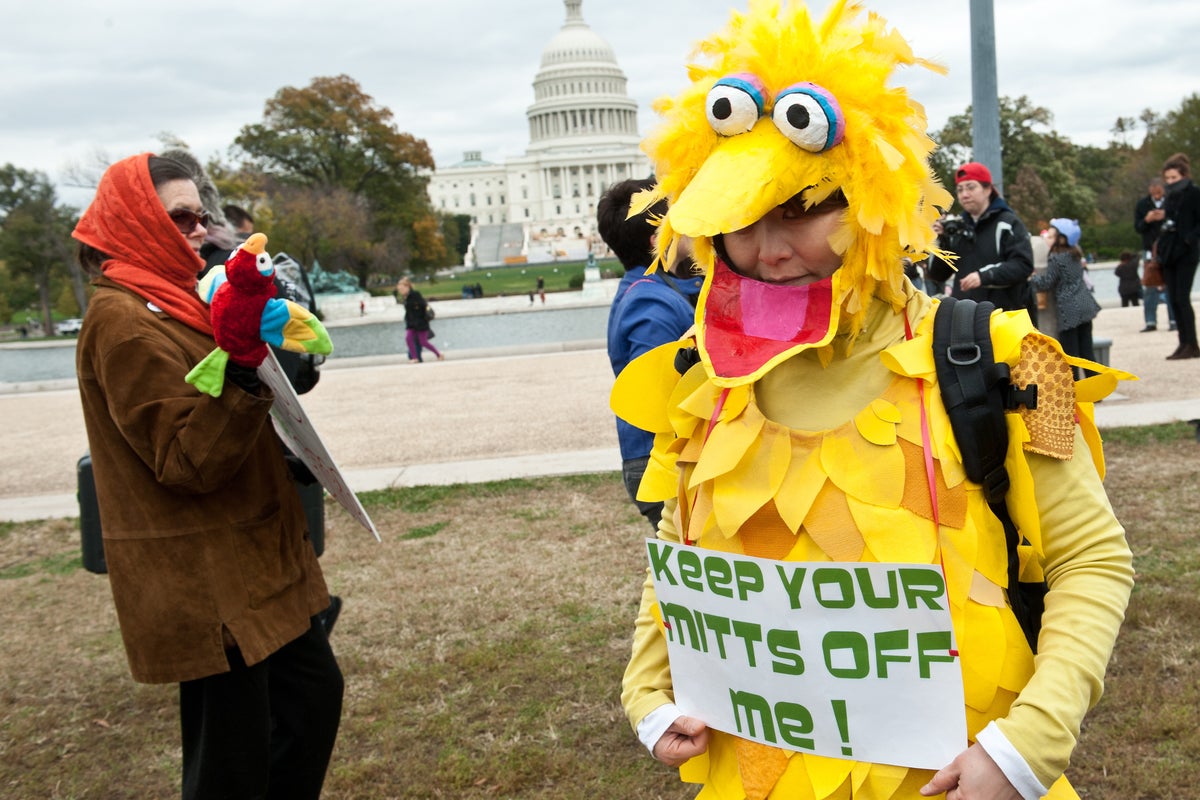Top Stories
Public Broadcasting Faces Shutdown Amid Funding Cuts

The **Corporation for Public Broadcasting** (CPB) announced on September 29, 2023, that it will cease operations due to the elimination of federal funding, marking an end to nearly six decades of contributions to public media in the United States. The organization informed its staff that most positions will be terminated by the end of the fiscal year, with a small transition team remaining until January.
Founded in 1968, the CPB has played a pivotal role in financing **PBS**, **NPR**, and approximately 1,500 local radio and television stations. It has been instrumental in producing educational programs, cultural content, and emergency alerts. The funding cuts stem from a decision made by President **Donald Trump**, who signed a bill on July 24, canceling around **$1.1 billion** that had been earmarked for public broadcasting. The administration has expressed a belief that the public media system is politically biased and an unnecessary expenditure.
Lawmakers representing rural constituencies are particularly concerned about the potential impact of these cuts on local public stations, with some expressing that closures are likely. The **Senate Appropriations Committee** has reinforced the funding elimination by excluding CPB funding from a broader spending bill for the first time in over 50 years.
The CPB does not produce programming nor does it control any public broadcasting stations. Its funds primarily support **PBS** and **NPR**, with approximately **70 percent** of its budget allocated to these entities. The impending financial shortfall is anticipated to be most detrimental to smaller public media stations in rural areas, with forecasts suggesting that up to **80 NPR stations** may shut down within the next year.
In **Mississippi**, **Mississippi Public Broadcasting** has already announced the elimination of a streaming channel dedicated to children’s programming, while **Maine’s** public media system faces a budget cut of **$2.5 million**, which accounts for about **12 percent** of its total budget. This reduction in funding is especially concerning for rural residents who rely on public media for vital information, such as weather updates and disaster alerts. In **Kodiak, Alaska**, local station **KMXT** predicts that the cuts will slice **22 percent** from its budget, jeopardizing its ability to deliver critical news and emergency alerts.
Established in 1969, **Sesame Street** has become a cultural icon, capturing the hearts of child viewers and adults alike. The show has featured numerous beloved characters, including **Big Bird** and **Elmo**, and has been praised for its educational value. Despite the challenges posed by funding cuts, a report from **The New York Times** indicates that **Sesame Street** is expected to continue production independently of the CPB, as its funding structure does not rely heavily on the corporation.
Another significant program, **Finding Your Roots**, created by **Henry Louis Gates Jr.**, has gained acclaim for tracing the genealogies of notable figures. The show, which began in 2006, has evolved over the years and remains PBS’s most-watched program. It has reached nearly **18 million** viewers across various platforms and has received nominations for prestigious awards, including the Emmy.
While the immediate effects of funding cuts are evident, the long-term implications for public broadcasting could reshape the media landscape. Many programs, particularly those that have relied on CPB funding for a substantial portion of their budgets, may struggle to survive. Documentarian **Ken Burns** noted that the CPB accounts for about **20 percent** of the budgets for his projects, underscoring the potential loss of quality programming.
The cuts also raise questions about the broader impact on children’s programming, which has historically aimed to address educational disparities. Research has shown that children who have access to **Sesame Street** are more likely to be enrolled in the correct grade level for their age as they progress through school.
As public broadcasting faces this unprecedented challenge, the future of many beloved programs hangs in the balance, highlighting the vital role of public media in serving communities across the nation.
-

 Lifestyle3 months ago
Lifestyle3 months agoLibraries Challenge Rising E-Book Costs Amid Growing Demand
-

 Sports3 months ago
Sports3 months agoTyreek Hill Responds to Tua Tagovailoa’s Comments on Team Dynamics
-

 Sports3 months ago
Sports3 months agoLiverpool Secures Agreement to Sign Young Striker Will Wright
-

 Lifestyle3 months ago
Lifestyle3 months agoSave Your Split Tomatoes: Expert Tips for Gardeners
-

 Lifestyle3 months ago
Lifestyle3 months agoPrincess Beatrice’s Daughter Athena Joins Siblings at London Parade
-

 World3 months ago
World3 months agoWinter Storms Lash New South Wales with Snow, Flood Risks
-

 Science3 months ago
Science3 months agoTrump Administration Moves to Repeal Key Climate Regulation
-

 Science2 months ago
Science2 months agoSan Francisco Hosts Unique Contest to Identify “Performative Males”
-

 Business3 months ago
Business3 months agoSoFi Technologies Shares Slip 2% Following Insider Stock Sale
-

 Science3 months ago
Science3 months agoNew Tool Reveals Link Between Horse Coat Condition and Parasites
-

 Sports3 months ago
Sports3 months agoElon Musk Sculpture Travels From Utah to Yosemite National Park
-

 Science3 months ago
Science3 months agoNew Study Confirms Humans Transported Stonehenge Bluestones









